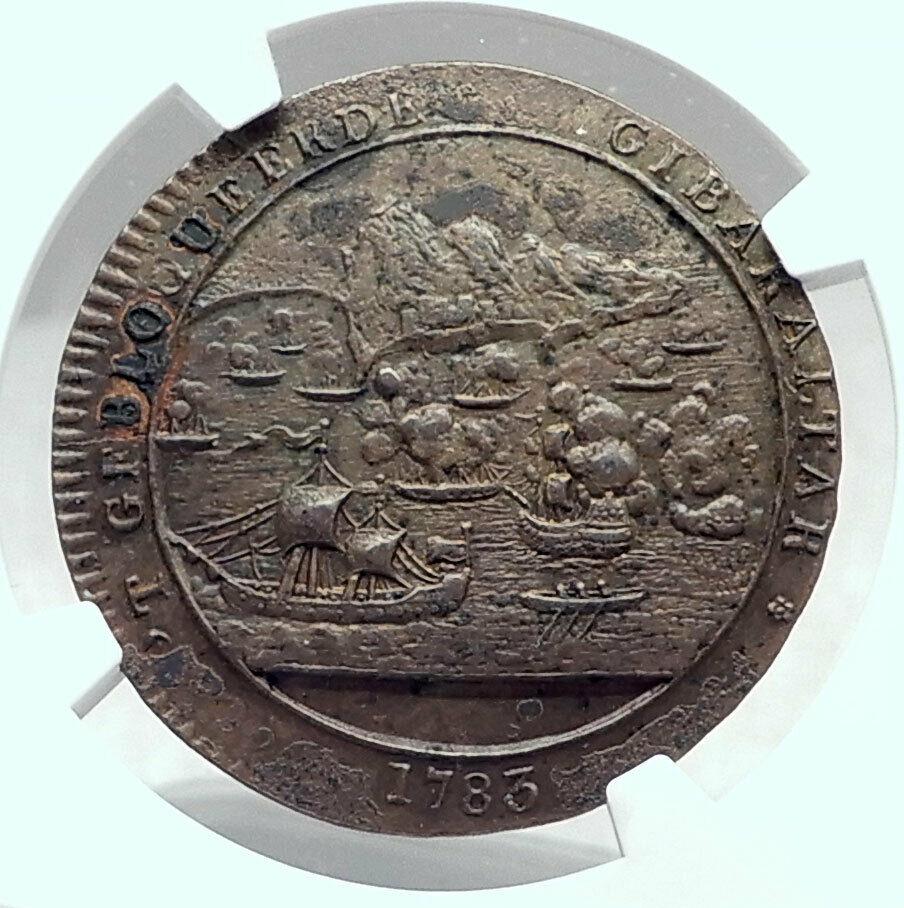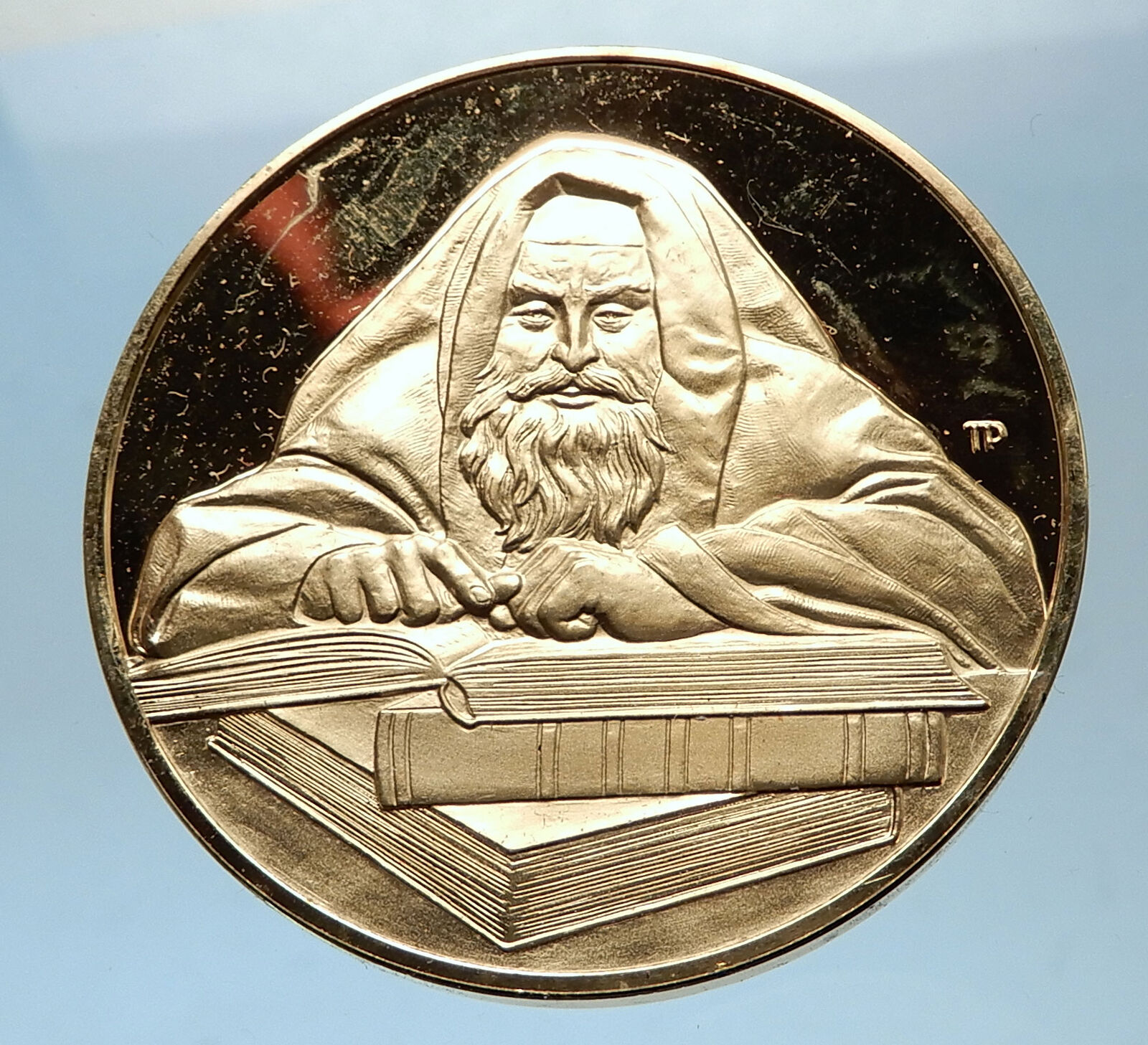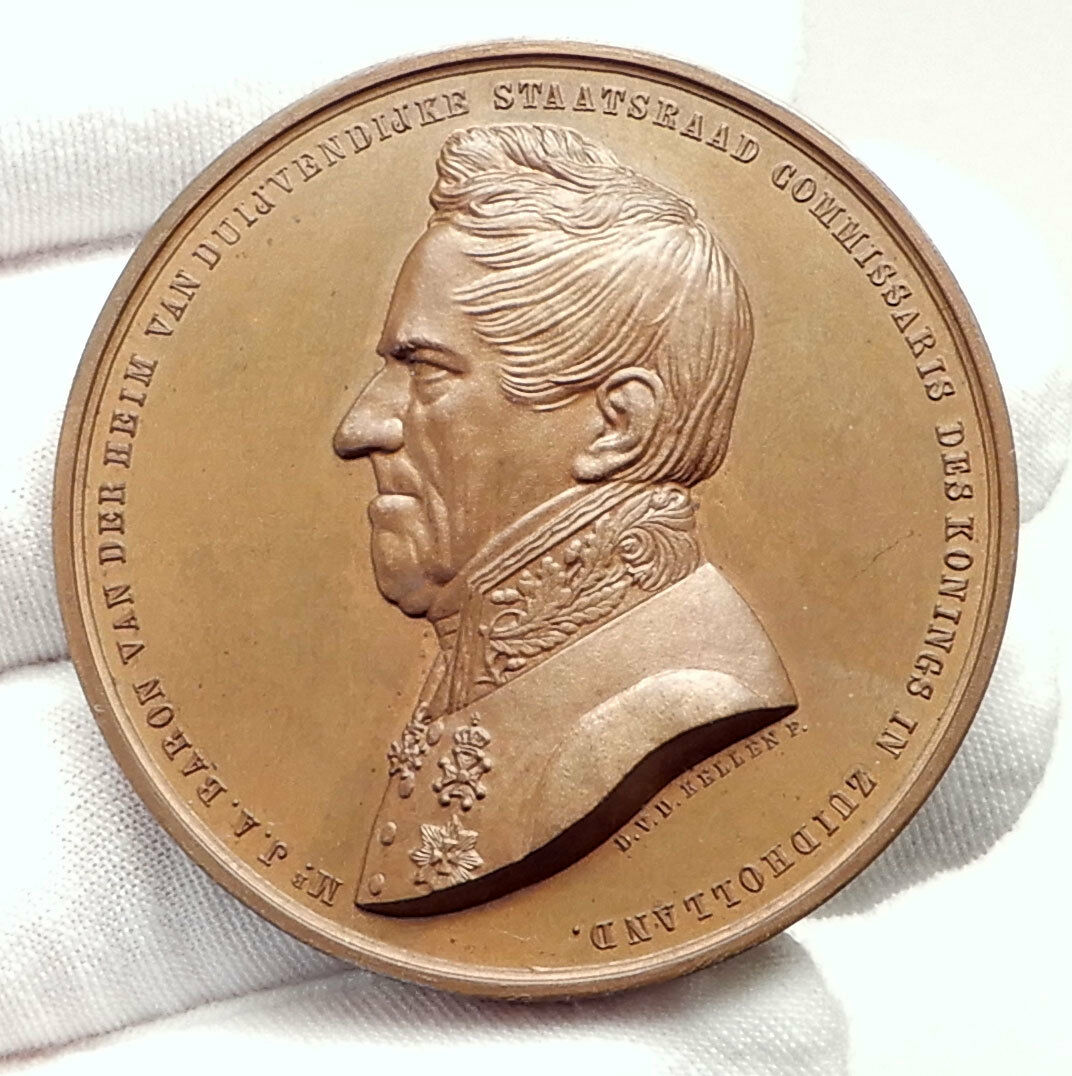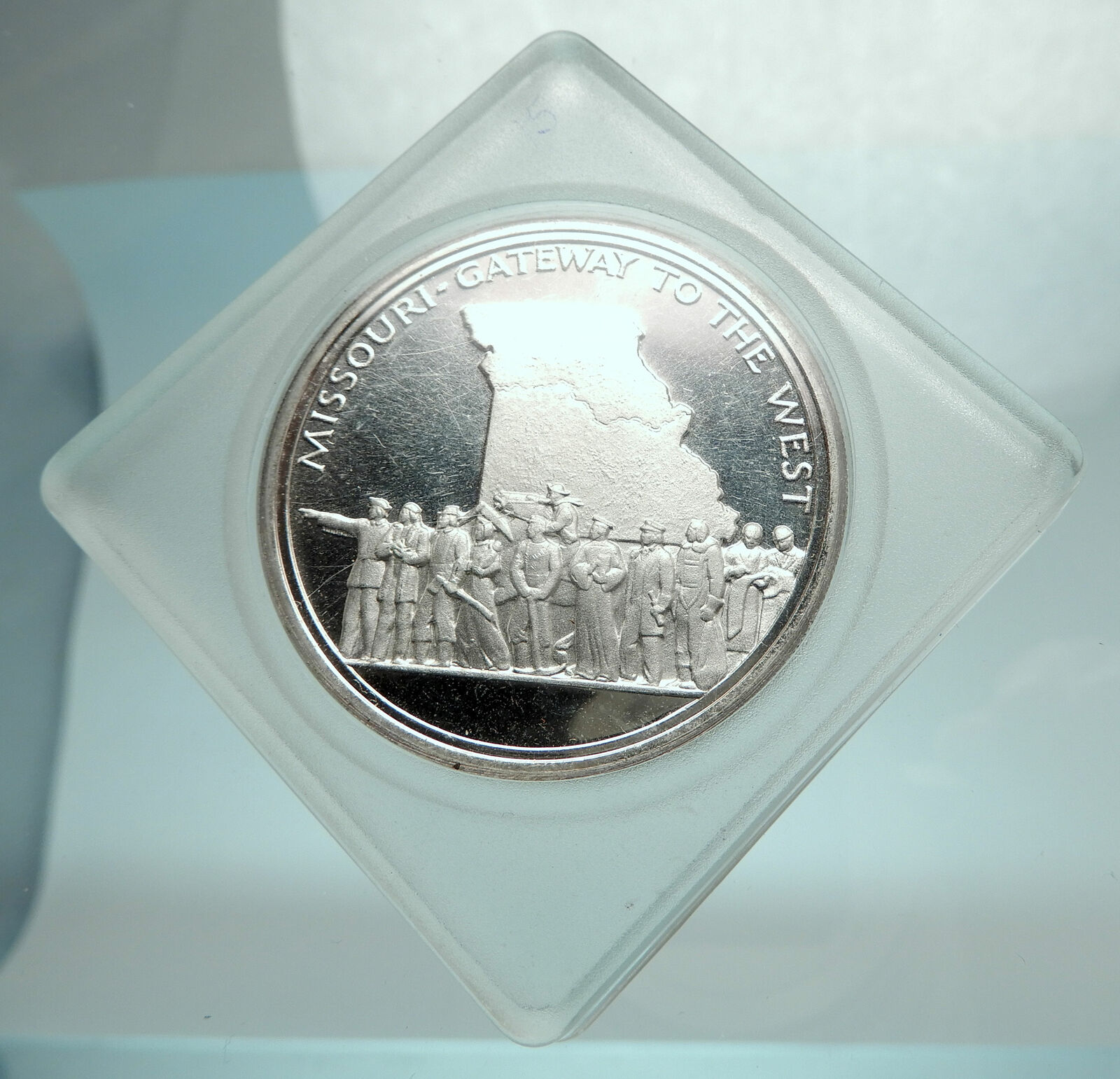|
Israel – Sha’are Zedek Hospital Medal, 5733-1973
1965 (Undated) Bronze Medal 59mm (98.34 grams)
Reference: ICMC# 15910595 | Designer: Yaacov Enyedi
A stylized projection of the Medical Center being erected, with panorama of Jerusalem in the background.
shaare zedek medical center jerusalem 1978, Emblem of the Sha’are Zedek Hospital in Jerusalem.
Edge Lettering
STATE OF ISRAEL
Coin Notes:
Sha’are Zedek Hospital has been associated with the Jewish community in Israel for over a century. It commenced as a clinic inside the old city of Jerusalem, with the help of Jews from Europe. In 1902 Dr. Moshe Wallach’s Hospital, the forerunner of Sha’are Zedek, was opened outside the city walls. The hospital kept vigil, guarding the people’s health in times of plague, during riots and during intervals of calm. During the War of Independence, throughout the siege of Jerusalem, Sha’are Zedek was often under enemy fire, but its medical work did not stop. During the Six Day War and during the Yom Kippur War, the hospital admitted hundreds of wounded and performed hundreds of operations. In 1978, a State medal was issued in honor of the opening of the new Sha’are Zedek Medical Center.
You are bidding on the exact item pictured, provided with a Certificate of Authenticity and Lifetime Guarantee of Authenticity.
The Shaare Zedek Medical Center (Hebrew: מרכז רפואי שערי צדק, Merkaz Refu’i Sha’arei Tzedek) (lit. “Gates of Justice”) is a major hospital in Jerusalem established in 1902.
 Shaare Zedek was the first large hospital to be located in the Western portion of Jerusalem and is today the city’s fastest growing hospital and the only major medical facility in the city’s center. After the Ottoman Turks gave permission in the 1890s, and with funding from European donors, the hospital was built on Jaffa Road, two miles (3 km) outside the Old City. The design was by German architect Theodor Sandel Its opening ceremony took place on January 27, 1902. Dr. Moshe Wallach was the director from then until 1947. Schwester Selma lived in the hospital and cared for abandoned children. The building in Bayit Vegan was inaugurated in 1980. Shaare Zedek was the first large hospital to be located in the Western portion of Jerusalem and is today the city’s fastest growing hospital and the only major medical facility in the city’s center. After the Ottoman Turks gave permission in the 1890s, and with funding from European donors, the hospital was built on Jaffa Road, two miles (3 km) outside the Old City. The design was by German architect Theodor Sandel Its opening ceremony took place on January 27, 1902. Dr. Moshe Wallach was the director from then until 1947. Schwester Selma lived in the hospital and cared for abandoned children. The building in Bayit Vegan was inaugurated in 1980.
 In December 2012, Shaare Zedek assumed operational control over Bikur Cholim Hospital and merged many of its activities. The hospital treats over 600,000 patients per year in more than 30 inpatient departments and over 70 outpatient units and maintains a very active academic service as a leading research and teaching institution. Shaare Zedek is classified as a public/private hospital, serving as a non-profit institution and dependent on donor support for capital development, while committed to offering advanced medical care for the wider Jerusalem-area community. In December 2012, Shaare Zedek assumed operational control over Bikur Cholim Hospital and merged many of its activities. The hospital treats over 600,000 patients per year in more than 30 inpatient departments and over 70 outpatient units and maintains a very active academic service as a leading research and teaching institution. Shaare Zedek is classified as a public/private hospital, serving as a non-profit institution and dependent on donor support for capital development, while committed to offering advanced medical care for the wider Jerusalem-area community.
 Israel (/ˈɪzriəl, ˈɪzreɪəl/; Hebrew: יִשְׂרָאֵל; Arabic: إِسْرَائِيل), officially the State of Israel, is a country in the Middle East, on the southeastern shore of the Mediterranean Sea and the northern shore of the Red Sea. It has land borders with Lebanon to the north, Syria to the northeast, Jordan on the east, the Palestinian territories of the West Bank and Gaza Strip to the east and west, respectively, and Egypt to the southwest. The country contains geographically diverse features within its relatively small area. Israel’s economic and technological center is Tel Aviv, while its seat of government and proclaimed capital is Jerusalem, although the state’s sovereignty over Jerusalem has only partial recognition. Israel (/ˈɪzriəl, ˈɪzreɪəl/; Hebrew: יִשְׂרָאֵל; Arabic: إِسْرَائِيل), officially the State of Israel, is a country in the Middle East, on the southeastern shore of the Mediterranean Sea and the northern shore of the Red Sea. It has land borders with Lebanon to the north, Syria to the northeast, Jordan on the east, the Palestinian territories of the West Bank and Gaza Strip to the east and west, respectively, and Egypt to the southwest. The country contains geographically diverse features within its relatively small area. Israel’s economic and technological center is Tel Aviv, while its seat of government and proclaimed capital is Jerusalem, although the state’s sovereignty over Jerusalem has only partial recognition.

Israel has evidence of the earliest migration of hominids out of Africa. Canaanite tribes are archaeologically attested since the Middle Bronze Age, while the Kingdoms of Israel and Judah emerged during the Iron Age. The Neo-Assyrian Empire destroyed Israel around 720 BCE. Judah was later conquered by the Babylonian, Persian and Hellenistic empires and had existed as Jewish autonomous provinces. The successful Maccabean Revolt led to an independent Hasmonean kingdom by 110 BCE, which in 63 BCE however became a client state of the Roman Republic that subsequently installed the Herodian dynasty in 37 BCE, and in 6 CE created the Roman province of Judea. Judea lasted as a Roman province until the failed Jewish revolts resulted in widespread destruction, expulsion of Jewish population and the renaming of the region from Iudaea to Syria Palaestina.[34] Jewish presence in the region has persisted to a certain extent over the centuries. In the 7th century the Levant was taken from the Byzantine Empire by the Arabs and remained in Muslim control until the First Crusade of 1099, followed by the Ayyubid conquest of 1187. The Mamluk Sultanate of Egypt extended its control over the Levant in the 13th century until its defeat by the Ottoman Empire in 1517. During the 19th century, national awakening among Jews led to the establishment of the Zionist movement in the diaspora followed by waves of immigration to Ottoman and later British Palestine.
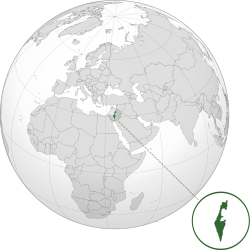 In 1947, the United Nations adopted a Partition Plan for Palestine recommending the creation of independent Arab and Jewish states and an internationalized Jerusalem. The plan was accepted by the Jewish Agency, and rejected by Arab leaders. The following year, the Jewish Agency declared the independence of the State of Israel, and the subsequent 1948 Arab-Israeli War saw Israel’s establishment over most of the former Mandate territory, while the West Bank and Gaza were held by neighboring Arab states. Israel has since fought several wars with Arab countries, and it has since 1967 occupied territories including the West Bank, Golan Heights and the Gaza Strip (still considered occupied after 2005 disengagement, although some legal experts dispute this claim).[41][42][43][fn 4] It extended its laws to the Golan Heights and East Jerusalem, but not the West Bank. Israel’s occupation of the Palestinian territories is the world’s longest military occupation in modern times.[fn 4][49] Efforts to resolve the Israeli-Palestinian conflict have not resulted in a final peace agreement. However, peace treaties between Israel and both Egypt and Jordan have been signed. In 1947, the United Nations adopted a Partition Plan for Palestine recommending the creation of independent Arab and Jewish states and an internationalized Jerusalem. The plan was accepted by the Jewish Agency, and rejected by Arab leaders. The following year, the Jewish Agency declared the independence of the State of Israel, and the subsequent 1948 Arab-Israeli War saw Israel’s establishment over most of the former Mandate territory, while the West Bank and Gaza were held by neighboring Arab states. Israel has since fought several wars with Arab countries, and it has since 1967 occupied territories including the West Bank, Golan Heights and the Gaza Strip (still considered occupied after 2005 disengagement, although some legal experts dispute this claim).[41][42][43][fn 4] It extended its laws to the Golan Heights and East Jerusalem, but not the West Bank. Israel’s occupation of the Palestinian territories is the world’s longest military occupation in modern times.[fn 4][49] Efforts to resolve the Israeli-Palestinian conflict have not resulted in a final peace agreement. However, peace treaties between Israel and both Egypt and Jordan have been signed.
In its Basic Laws, Israel defines itself as a Jewish and democratic state. Israel is a representative democracy[neutrality is disputed] with a parliamentary system, proportional representation and universal suffrage. The prime minister is head of government and the Knesset is the legislature. Israel is a developed country and an OECD member, with the 32nd-largest economy in the world by nominal gross domestic product as of 2017. The country benefits from a highly skilled workforce and is among the most educated countries in the world with one of the highest percentages of its citizens holding a tertiary education degree. Israel has the highest standard of living in the Middle East, and has one of the highest life expectancies in the world.
|





 Shaare Zedek was the first large hospital to be located in the Western portion of Jerusalem and is today the city’s fastest growing hospital and the only major medical facility in the city’s center. After the Ottoman Turks gave permission in the 1890s, and with funding from European donors, the hospital was built on Jaffa Road, two miles (3 km) outside the Old City. The design was by German architect Theodor Sandel Its opening ceremony took place on January 27, 1902. Dr. Moshe Wallach was the director from then until 1947. Schwester Selma lived in the hospital and cared for abandoned children. The building in Bayit Vegan was inaugurated in 1980.
Shaare Zedek was the first large hospital to be located in the Western portion of Jerusalem and is today the city’s fastest growing hospital and the only major medical facility in the city’s center. After the Ottoman Turks gave permission in the 1890s, and with funding from European donors, the hospital was built on Jaffa Road, two miles (3 km) outside the Old City. The design was by German architect Theodor Sandel Its opening ceremony took place on January 27, 1902. Dr. Moshe Wallach was the director from then until 1947. Schwester Selma lived in the hospital and cared for abandoned children. The building in Bayit Vegan was inaugurated in 1980. In December 2012, Shaare Zedek assumed operational control over Bikur Cholim Hospital and merged many of its activities. The hospital treats over 600,000 patients per year in more than 30 inpatient departments and over 70 outpatient units and maintains a very active academic service as a leading research and teaching institution. Shaare Zedek is classified as a public/private hospital, serving as a non-profit institution and dependent on donor support for capital development, while committed to offering advanced medical care for the wider Jerusalem-area community.
In December 2012, Shaare Zedek assumed operational control over Bikur Cholim Hospital and merged many of its activities. The hospital treats over 600,000 patients per year in more than 30 inpatient departments and over 70 outpatient units and maintains a very active academic service as a leading research and teaching institution. Shaare Zedek is classified as a public/private hospital, serving as a non-profit institution and dependent on donor support for capital development, while committed to offering advanced medical care for the wider Jerusalem-area community. Israel (/ˈɪzriəl, ˈɪzreɪəl/; Hebrew: יִשְׂרָאֵל; Arabic: إِسْرَائِيل), officially the State of Israel, is a country in the Middle East, on the southeastern shore of the Mediterranean Sea and the northern shore of the Red Sea. It has land borders with Lebanon to the north, Syria to the northeast, Jordan on the east, the Palestinian territories of the West Bank and Gaza Strip to the east and west, respectively, and Egypt to the southwest. The country contains geographically diverse features within its relatively small area. Israel’s economic and technological center is Tel Aviv, while its seat of government and proclaimed capital is Jerusalem, although the state’s sovereignty over Jerusalem has only partial recognition.
Israel (/ˈɪzriəl, ˈɪzreɪəl/; Hebrew: יִשְׂרָאֵל; Arabic: إِسْرَائِيل), officially the State of Israel, is a country in the Middle East, on the southeastern shore of the Mediterranean Sea and the northern shore of the Red Sea. It has land borders with Lebanon to the north, Syria to the northeast, Jordan on the east, the Palestinian territories of the West Bank and Gaza Strip to the east and west, respectively, and Egypt to the southwest. The country contains geographically diverse features within its relatively small area. Israel’s economic and technological center is Tel Aviv, while its seat of government and proclaimed capital is Jerusalem, although the state’s sovereignty over Jerusalem has only partial recognition.
 In 1947, the United Nations adopted a Partition Plan for Palestine recommending the creation of independent Arab and Jewish states and an internationalized Jerusalem. The plan was accepted by the Jewish Agency, and rejected by Arab leaders. The following year, the Jewish Agency declared the independence of the State of Israel, and the subsequent 1948 Arab-Israeli War saw Israel’s establishment over most of the former Mandate territory, while the West Bank and Gaza were held by neighboring Arab states. Israel has since fought several wars with Arab countries, and it has since 1967 occupied territories including the West Bank, Golan Heights and the Gaza Strip (still considered occupied after 2005 disengagement, although some legal experts dispute this claim).[41][42][43][fn 4] It extended its laws to the Golan Heights and East Jerusalem, but not the West Bank. Israel’s occupation of the Palestinian territories is the world’s longest military occupation in modern times.[fn 4][49] Efforts to resolve the Israeli-Palestinian conflict have not resulted in a final peace agreement. However, peace treaties between Israel and both Egypt and Jordan have been signed.
In 1947, the United Nations adopted a Partition Plan for Palestine recommending the creation of independent Arab and Jewish states and an internationalized Jerusalem. The plan was accepted by the Jewish Agency, and rejected by Arab leaders. The following year, the Jewish Agency declared the independence of the State of Israel, and the subsequent 1948 Arab-Israeli War saw Israel’s establishment over most of the former Mandate territory, while the West Bank and Gaza were held by neighboring Arab states. Israel has since fought several wars with Arab countries, and it has since 1967 occupied territories including the West Bank, Golan Heights and the Gaza Strip (still considered occupied after 2005 disengagement, although some legal experts dispute this claim).[41][42][43][fn 4] It extended its laws to the Golan Heights and East Jerusalem, but not the West Bank. Israel’s occupation of the Palestinian territories is the world’s longest military occupation in modern times.[fn 4][49] Efforts to resolve the Israeli-Palestinian conflict have not resulted in a final peace agreement. However, peace treaties between Israel and both Egypt and Jordan have been signed. 

